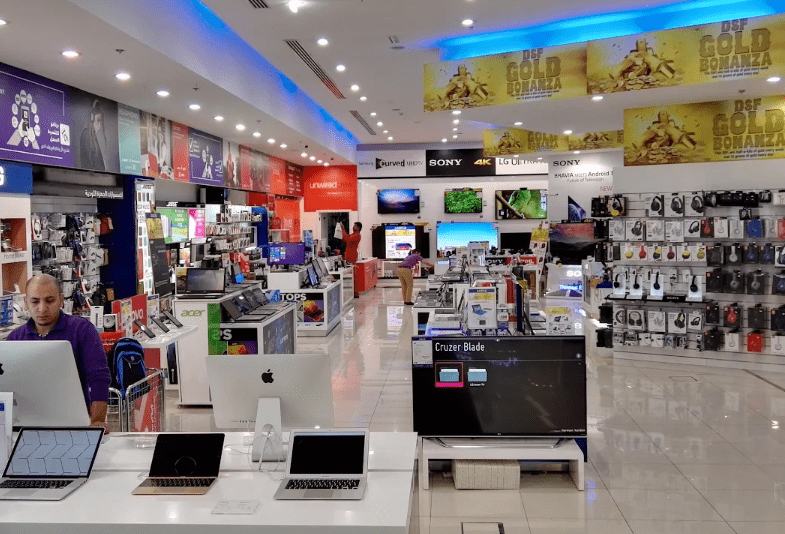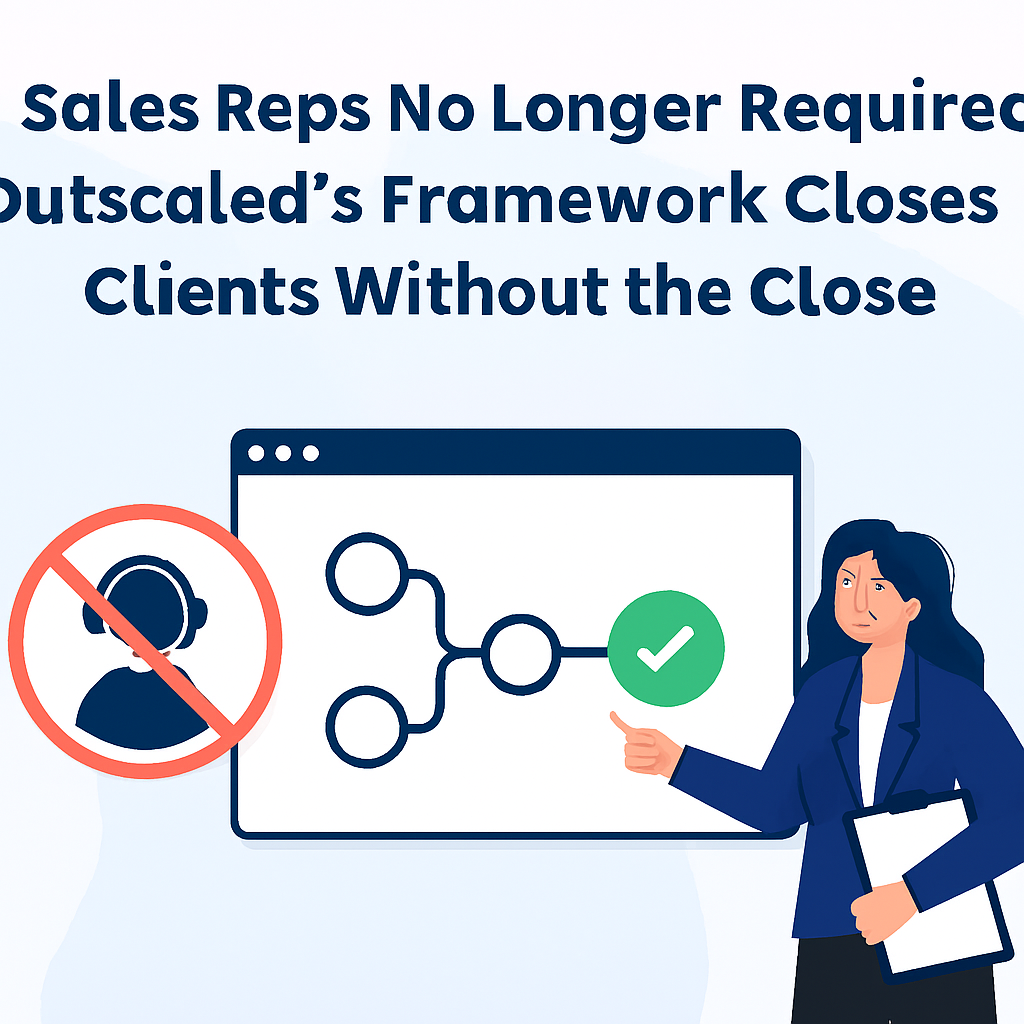Business
Winning the Battle: Locating the Best Store and Best Price in Dubai for Appliances

Luxurious living is a dream come true for people who visit Dubai, the glittering city that pulses with life. The necessity of installing high-quality appliances in your home must be remembered in the midst of the imposing skyscrapers and lavish retail centers. Narrowing down the appliance selection might be intimidating, regardless of your level of experience or where you’re starting from when creating your dream home. Please do not be alarmed; this thorough guide will provide you with the knowledge you need to overcome the challenge and locate the best place for appliances and home appliance deals in Dubai.
Being Aware of Your Needs
Consider your options carefully before venturing into the realm of refrigerators and washing machines. Take into account your individual needs for your appliances, your lifestyle, and your financial situation. Think on the following important factors:
- Size and Use of the Family: Compared to a single individual, a large family requires a larger refrigerator and washing machine. Determine the perfect appliance size and functionality by examining your daily usage habits.
- Energy Efficiency: The summers in Dubai are quite hot, and energy-efficient appliances can drastically lower your electricity costs. Seek for energy-efficient appliances with high star ratings.
- Budget: There is a large range of prices for appliances. Establish a reasonable spending limit and rank the things that are most important to you.
- Brand Preference: Do you have a particular brand in mind that is reputable for its dependability and effectiveness? Examine the reputation of various brands’ after-sales support.
The Appliance Arena: A Glimpse into Dubai’s Options
Dubai offers a diverse landscape for appliance shopping, catering to various budgets and preferences. Here’s a breakdown of the prominent players:
- Traditional Retailers: Renowned electronics giants like Sharaf DG and E-max boast extensive showrooms showcasing a vast array of brands and models. Their best deals on home appliances in Dubai often come during seasonal sales like White Friday or Eid. Trained staff can assist with product selection and answer your queries.
- Department Stores: Department stores with specific appliance areas may be found in malls like as Dubai Mall and Mall of the Emirates. Even though there might not be as much selection as at typical stores, you might find unexpected sales or packages that include more home goods.
- Online retailers: If you want to purchase from the comfort of your couch, e-commerce behemoths like Amazon.ae and noon.com provide a handy alternative. Choose from a wide assortment, quickly compare costs, and take advantage of special online savings. When making a purchase, be aware of possible return policies and delivery costs.
- Independent Retailers: Independent appliance retailers can be found sporadically throughout Dubai’s neighborhoods. These might be a veritable gold mine for locating particular brands or models at affordable costs. Prior to purchasing, though, careful investigation and warranty confirmation are essential.
How to Get the Best Offer
Now that you are aware of the conditions, let’s discuss how to get the greatest offer on household appliances in Dubai:
- Accept the Sales: Dubai is a city known for its enormous sales! Look out for periodic sales occasions where merchants offer steep discounts and cut prices, such as White Friday, Eid al-Fitr, and National Day.
- Price Comparison is Key: Comparing prices is essential, don’t accept the first offer you come across. Before making a choice, evaluate features and pricing by using online price comparison services or by visiting many stores.
- Bundle Up to Save: Appliances are frequently offered in bundles by merchants. When buying a refrigerator and microwave in one package, or a washing machine and dryer combined, you can frequently save a lot of money.
- Communicate: Although it may not be as common in big-box stores, it’s still worthwhile to attempt negotiating with independent merchants. You might be able to get a better deal by gently haggling, especially during sluggish times.
- Look for Clearance deals: Stores frequently host clearance deals to get rid of extra or outdated inventory. If you want high-quality appliances for a much lower price, these sales can be a veritable gold mine.
- Accept the Power of Coupons and Cashback Offers: When buying appliances, a number of online merchants and credit card issuers provide coupons and cashback incentives. Make the most of these to increase your savings.
Beyond the Price Tag: Extra Things to Think About
Although finding the greatest price on household appliances in Dubai is crucial, keep in mind that cost shouldn’t be the only consideration. The following extra factors should be taken into account to guarantee a happy purchase:
- Warranty: Check the warranty period offered by the retailer and manufacturer. Opt for extended warranties for peace of mind, especially for high-value appliances.
- After-Sales Service: Research the retailer’s reputation for after-sales service. Prompt and efficient service is crucial in case of any issues with your appliance.
- Delivery and Installation: When comparing rates, take the delivery and installation fees into account. For certain appliances or when you reach a certain threshold in your purchase, certain stores may provide free shipping and installation.
- Product Reviews and Ratings: Never undervalue the influence of user-generated internet reviews and ratings. These might offer insightful information about how well and dependably appliances operate in the actual world.
- Return Policy: Make sure the merchant has a simple and accommodating return policy for customers in the event that the appliance does not live up to your expectations.
- Training and Demonstration: For complicated appliances, find out if the manufacturer or store offers training and demonstration sessions. Optimizing the efficiency and lifespan of your appliance can be achieved by learning how to use it efficiently.
These all-inclusive tactics will provide you the tools you need to successfully negotiate Dubai’s ever-changing appliance market and get the greatest location and value for your household appliance purchases. Beyond the big-box retailers, Dubai offers a network of specialized stores catering to specific appliance needs. Recall that furnishing a home with a cozy and useful atmosphere starts with making educated purchases. Have fun with your purchases!
Business
Sales Reps No Longer Required: Outscaled’s Framework Closes Clients Without the Close

Outscaled is challenging the very foundation of traditional sales teams with a framework that eliminates the need for discovery calls, demos, or high-pressure sales reps. The company’s flagship system, the Silent Method, is helping hundreds of businesses close high-ticket deals without ever jumping on a call.
The Silent Method was developed by Outscaled co-founders Jake and Nathan Arthur after scaling multiple remote-first companies to 7 and 8 figures. At its core is a single, persuasive digital asset – a conversion-focused sales page that guides potential clients through the offer, pricing, proof, and action steps, all without a sales conversation.
“Most founders don’t want to spend their days chasing leads or managing closers,” said Jake, co-founder of Outscaled. “We designed the Silent Method to take the friction out of selling. It works 24/7, even with cold traffic, and lets our clients scale without burnout.”
This automation-friendly sales approach is particularly powerful for coaches, consultants, and agencies who want to sell premium offers without the complexity of traditional funnels or sales calls. Instead of building teams of closers, Outscaled clients are leveraging their Sales Sheets to pre-sell, qualify, and convert prospects using a proven structure and streamlined follow-up.
“The biggest myth in sales is that persuasion happens on a call,” added Nathan Arthur. “In reality, it happens before the call, or better yet, without one at all. The Silent Method gives founders back their time and their control.”
With results pouring in from industries ranging from business consulting to design services and personal development, Outscaled’s framework is quickly becoming the new standard for high-ticket digital sales.
For more information, visit outscaled.io or contact:
Contact:
Outscaled Team
team@outscaled.io
+1 954-908-6234
Outscaled Facebook
Outscaled Instagram
Business
How Does the RapidWorkers Site Work to Earn Money?

Earning money online has become a global trend, but many people are unsure where to start. Traditional freelancing often demands specialized skills, a strong portfolio, and significant time investment. On the other hand, survey sites and “get-rich-quick” platforms frequently disappoint with low payouts or questionable legitimacy.
This is where rapid workers steps in. Rapidworkers is a micro-task site designed to connect businesses that need small online jobs completed with individuals willing to perform them for pay. If you’ve ever wondered how RapidWorkers makes money, this article will walk you through the challenges it solves, strategies to maximize your earnings, the benefits of the platform, and tools that can help you succeed.
The Problem: Why Making Money Online Feels Overwhelming
For most people, earning money online presents several challenges:
- High skill barriers: Many freelance platforms favor those with technical expertise in design, coding, or copywriting.
- Long turnaround times: Larger projects often require days or weeks to complete before payment.
- Unclear payment terms: Some sites delay or fail to pay workers.
- Limited global access: Certain platforms restrict opportunities to specific regions.
For example, a study by Statista shows that while digital gig work is growing rapidly worldwide, many entry-level workers feel excluded due to a lack of experience. This creates demand for a platform that provides fast, simple, and legitimate micro-income opportunities, exactly what Rapidworkers offers.
Getting Started With Rapidworkers
Starting with Rapidworkers is simple and quick. You only need a few steps to begin earning money by completing small tasks online. These tasks are easy and do not require special skills. The site connects workers with employers who need small jobs done.
This section shows how to create your account and set up your profile. Both steps are important to get started and to receive tasks that match your skills.
Creating An Account
Go to the Rapidworkers website and find the sign-up button. Fill in your email, username, and password. Use a valid email because you will need to confirm it. After registering, check your email for a confirmation message. Click the link in that email to activate your account. Once activated, you can log in and start working.
Setting Up Your Profile
After creating your account, set up your profile. Add your full name and country. This helps employers know who they are hiring. Upload a clear profile picture if possible. Write a short description about yourself. Mention any skills or experience you have. A complete profile increases your chances of getting tasks. Keep your profile honest and updated. This builds trust with employers and helps you earn more.
Types Of Tasks Available
The Rapidworkers site offers many types of tasks to earn money. Each task is simple and quick. This variety helps workers find tasks that suit their skills and time. Understanding the types of tasks can help you choose the best way to earn.
Micro Tasks Overview
Micro tasks are small jobs that take just a few minutes. They often need little training or special skills. These tasks include clicking, watching videos, or filling out surveys. Each completed task earns a small payment. Doing many micro tasks can add up to a good income.
Popular Task Categories
Some common task categories stand out on Rapidworkers. Data entry jobs ask you to input or check information. Social media tasks include liking posts or following accounts. Website testing tasks ask for feedback on websites or apps. Surveys gather opinions on products or services. These categories offer many chances to earn money quickly.
How To Choose Tasks
Choosing the right tasks on Rapidworkers can help you earn money faster. The site offers many tasks, but not all tasks pay the same or take the same time. Picking tasks carefully saves your time and increases your earnings.
Focus on tasks that match your skills and pay well. Avoid tasks that seem too hard or pay very little. Use the site tools to filter and select tasks smartly.
Filtering Tasks By Difficulty
Rapidworkers lets you filter tasks by difficulty. Easy tasks take less time but may pay less. Hard tasks might pay more but need more effort. Choose tasks that suit your skill level. This helps you finish tasks quickly and avoid mistakes.
Selecting High-paying Tasks
High-paying tasks offer better rewards for your time. Look for tasks with clear instructions and good ratings. Avoid tasks that seem suspicious or have low pay. Prioritize tasks that pay more for less work. This strategy helps you earn more in less time.
Completing Tasks Effectively
Completing tasks effectively on Rapidworkers is key to earning steady money. Each task demands attention to detail and meeting specific instructions. This helps avoid rejections and saves time.
Understanding the task well leads to faster approval and more earnings. Focus on accuracy and follow the rules closely. Small mistakes can cause delays or loss of payment.
Task Requirements And Guidelines
Every task on Rapidworkers comes with clear requirements. Read them carefully before starting. They explain what you must do and how to submit your work.
Some tasks need screenshots as proof. Others require filling out forms or clicking links. Follow all instructions exactly to get paid.
Ignore extra steps that are not listed. Stick to the task scope to avoid rejection. Check the deadline and finish on time.
Tips For Fast And Accurate Completion
Focus on one task at a time. This reduces errors and speeds up work. Use a checklist to track steps for each task.
Double-check your answers or uploads before submission. Correct mistakes early to prevent delays. Stay organized to handle multiple tasks smoothly.
Use a stable internet connection to avoid interruptions. Save your work regularly. This keeps progress safe and helps meet deadlines.
Payment Methods And Payouts
Understanding payment methods and payouts on Rapidworkers is essential for users who want to earn money effectively. This section explains how you can receive your earnings, the minimum amount needed to withdraw, and the time it takes to get paid. Clear knowledge about these aspects helps you plan your tasks better and avoid surprises.
Available Payment Options
Rapidworkers offers several ways to get paid. The most common option is PayPal, a secure and widely used platform. You can also choose payment via Payoneer, which is popular for international users. Some users prefer gift cards, which Rapidworkers occasionally provides. These choices give flexibility to users worldwide.
Minimum Withdrawal Limits
Before requesting a payout, you must reach a minimum balance. Rapidworkers sets this limit at $10. This amount is easy to achieve by completing small tasks. Keeping track of your earnings helps you know when you can withdraw money. Reaching the limit quickly encourages steady task completion.
Payment Processing Times
After you request a payout, Rapidworkers processes payments within 3 to 5 days. This time frame depends on the payment method you choose. PayPal payments usually arrive faster than other options. Being aware of processing times helps you manage your expectations.
Maximizing Earnings On Rapidworkers
Maximizing earnings on Rapidworkers requires a smart approach. Consistency and wise task choices can boost your income. Understanding the referral program adds another income source. Focus on strategies that fit your time and skills. Small efforts each day add up quickly.
Consistency And Task Selection
Regular activity on Rapidworkers helps maintain steady earnings. Check the site daily to find new tasks. Choose tasks you can complete fast and well. Simple tasks often pay less but take less time. Complex tasks may pay more but need more effort. Balance your time and task difficulty for the best results. Avoid tasks that seem unclear or risky. Staying active and selective leads to steady income growth.
Referral Program Benefits
Rapidworkers offers a referral program to increase your earnings. Invite friends to join and earn a percentage of their income. This creates a passive income stream alongside your tasks. Share your referral link in places where people trust you. Explain the benefits of joining Rapidworkers to your referrals. The more active your referrals are, the more you earn. Use the referral program as a long-term earning strategy.
Common Challenges And Solutions
Using Rapidworkers to earn money has some challenges. Knowing these helps avoid problems. Simple solutions keep your account safe and earnings steady.
Avoiding Task Rejections
Task rejections reduce your earnings and lower your rating. Read each task’s instructions carefully before starting. Follow every step exactly as asked.
Check your work for mistakes before submitting. Double-check links, answers, and any required proof. Submit clear screenshots if needed. This helps show you completed the task correctly.
Do not rush tasks. Taking time improves accuracy and lowers rejection chances. If unsure about a task, skip it. Choose tasks you understand well.
Dealing With Account Issues
Account problems can stop your earnings. Keep your login details safe and private. Use a strong password and change it regularly.
Verify your email and profile information fully. Incomplete profiles may cause delays or restrictions. Contact Rapidworkers support quickly if you face issues.
Stay polite and clear in your messages to support. Provide all requested details to speed up help. Avoid using multiple accounts to prevent bans.
User Experiences And Reviews
User experiences and reviews reveal how Rapidworkers helps people earn money. Many users share their personal stories and challenges. These insights show what to expect from the site. Reading real feedback helps new users decide if it suits them.
Success Stories
Some users report steady earnings from simple tasks. They praise the easy signup process and fast task completion. Many mention receiving payments on time without hassle. For some, Rapidworkers became a small but consistent income source. Success often depends on task availability and user effort.
Potential Drawbacks
Some users face low pay rates for certain tasks. A few mention waiting longer to reach the minimum payout. Task quality can vary, with some feeling repetitive or dull. Occasional account restrictions have affected a small number of users. Patience and careful task selection can reduce these issues.
Frequently Asked Questions
What Is Rapidworkers, And How Does It Pay?
Rapidworkers is a micro-task website that pays users for completing small online jobs. Payments are made via PayPal or other supported methods once tasks are verified and approved. Users earn money by performing simple tasks like surveys, app downloads, and data entry.
How Do I Start Earning Money On Rapidworkers?
To start earning, sign up for a free account on Rapidworkers. Browse available tasks and complete those that match your skills. Submit proof of task completion for approval. Earnings accumulate in your account and can be withdrawn after reaching the minimum payout threshold.
Are Rapidworkers Tasks Easy And Quick To Complete?
Yes, most Rapidworkers tasks are designed to be simple and fast. Tasks typically take a few minutes each, such as watching videos, signing up for websites, or sharing content. This allows users to earn money steadily by completing multiple tasks daily.
Is Rapidworkers A Legitimate Site For Earning Money?
Rapidworkers is generally considered legitimate as it has paid thousands of users worldwide. However, earnings may be modest, and task availability varies. Always be cautious and avoid tasks requiring sensitive personal information to protect your privacy and security.
Conclusion
Making money online doesn’t have to be complicated. With Rapidworkers, you can start earning by completing simple micro-tasks, even if you have no advanced skills or prior freelancing experience. The platform is reliable, easy to use, and designed for both businesses seeking quick online engagement and individuals looking for flexible income opportunities.
Business
Why More Indian Start-ups Prefer Business Setup Dubai UAE for Expansion

When Indian start-ups think about moving beyond home ground, Dubai usually comes up early in the discussion. It is nearby, easy to reach, and already familiar to many because of trade links and travel. The city is more than just a stopover; it has become a natural choice for businesses that want to take their next step abroad.
And when people talk about business setup Dubai UAE, they are not just thinking about tall towers or global offices. They are looking at a system that actually supports registration and growth.
Why Start-ups Look at Dubai?
There are a few reasons why young companies from India keep choosing a business setup in Dubai. The city connects East and West, offers multiple free zones, and has a large base of international clients. For a founder sitting in Mumbai, Bengaluru, or Delhi, Dubai feels both global and accessible at the same time.
But moving into a new country also means working with a framework that is not the same as India’s. Licences, approvals, and banking processes are all part of the deal. This is where guidance becomes essential; otherwise, time and energy get wasted in figuring things out.
Role of Consultants in Setup
A business set up consultant in Dubai is often the first call many founders make once they decide to expand. Why? Because the consultant already knows the route. Instead of trial and error, the process gets mapped clearly.
Think of a start-up founder trying to choose between a mainland entity and a free zone option. On paper, both look fine. In practice, the decision affects ownership, office space, and future expansion. Consultants break down these differences in simple terms and help the founder decide what fits best.
Typical areas where consultants step in:
- Choosing between the free zone, the mainland, and the offshore.
- Preparing and checking incorporation documents.
- Coordinating with different authorities for faster approvals.
- Helping with bank account formalities and visa applications.
For a start-up, this support means less time wasted on queues and more time spent on product and customers.
Business Setup Services in Dubai
The range of business setup services in Dubai goes beyond just forming a company. Many service providers handle the after-work as well.
That includes:
- Drafting legal papers
- Translation and attestation support
- Tax and compliance guidance
- PRO services for routine submissions
- Options for shared or private office space
Indian entrepreneurs, who may have spent weeks dealing with red tape back home, often find this system far simpler when handled by professionals.
Dubai vs Other Emirates
When talking about business setup in UAE, start-ups do look at other Emirates like Sharjah or Ras Al Khaimah. Each has its advantages. Some are more cost-effective, others may focus on specific industries.
Even so, Dubai continues to attract the majority because of its ecosystem. Free zones designed for technology, retail, and logistics, combined with global exposure, make it the preferred spot. Consultants working with business setup companies in Dubai usually help founders compare these options before finalising.
Why is the Trend Growing?
The real reason behind the shift is not just opportunity but also ease. Founders feel they can rely on business setup companies in Dubai to take care of the background work. This gives them confidence to enter a new market without worrying about missing forms or unclear rules.
Over the last few years, the pattern has been the same: more Indian start-ups, especially in services and technology, have looked at business setup in Dubai UAE, as their first international move.
Conclusion
For start-ups in India, global expansion does not have to mean moving too far. Dubai offers a mix of opportunities, location, and systems that make it attractive. With the help of a business set up consultant in Dubai and specialised business setup services in Dubai, entrepreneurs can focus on scaling instead of stressing about paperwork.
That is why business setup Dubai UAE continues to grow as a trend among Indian start-ups; it offers accessibility and clarity at a stage when both matter the most.
-

 Technology3 years ago
Technology3 years agoIs Camegle Legit Or A Scam?
-

 Travel3 years ago
Travel3 years agoNEW ZEALAND VISA FOR ISRAELI AND NORWEGIAN CITIZENS
-

 Technology3 years ago
Technology3 years agoRNDcoin: Korea’s first blockchain project and a world-class cryptocurrency
-

 Uncategorized3 years ago
Uncategorized3 years agoAMERICAN VISA FOR NORWEGIAN AND JAPANESE CITIZENS
-

 Fashion1 year ago
Fashion1 year agoGoda Perfume Reviews: Is It Worth Your Investment?
-
Lifestyle1 year ago
A Guide to Silverdaddies: What You Need to Know
-

 Health3 years ago
Health3 years agoHealth Benefits Of Watermelon
-

 Home Improvement8 months ago
Home Improvement8 months agoArtificial Grass Designs: Perfect Solutions for Urban Backyards














